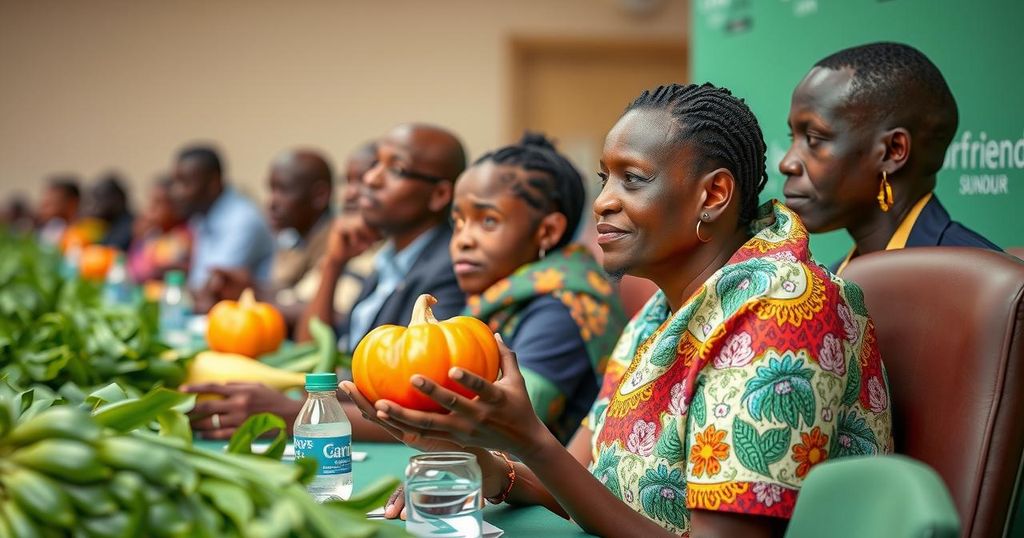The African Union summit in Kampala, Uganda, convenes agriculture ministers to address climate change’s impact on food security. With rising global temperatures and increasing food prices due to droughts and conflicts, the summit aims to establish a 10-year action plan to enhance food self-sufficiency in Africa through sustainable agricultural practices and technology.
This week, Africa’s agriculture ministers convened in Kampala, Uganda, for an extraordinary African Union (AU) summit focused on sustainable agricultural practices and food production systems amidst the pressing challenges of climate change. With escalating food prices driven by climate-related adversities such as droughts, floods, and conflicts, the delegates aim to explore strategies for adapting agricultural practices to both modern technology and the evolving climate. The summit is crucial, particularly as the European Union’s climate monitoring revealed that 2024 marked the first full year where global temperatures surpassed pre-industrial levels by 1.5°C, raising alarms about the future of food security in the region.
The summit opened on January 9, drawing over 2,000 participants from across the continent who seek to devise actionable policies within a 10-year framework to promote food self-sufficiency in Africa. Uganda’s Prime Minister, Robinah Nabbanja, highlighted the need for effective solutions to counteract the impacts of changing weather patterns, shifting food preferences, increasing conflicts, and diminishing arable land. The meeting takes place against a concerning backdrop, as the United Nations Conference on Trade and Development (UNCTAD) reported a rise in global food insecurity from 512 million individuals in 2014 to over 790 million in 2021, emphasizing the urgent need for decisive action in the agricultural sector.
The AU summit in Uganda is a response to the growing environmental and socio-economic pressures facing Africa’s agricultural landscape. With climate change leading to unpredictable weather patterns, food prices have surged significantly, posing a serious threat to food security across the continent. As agricultural ministers from various countries gather, the focus is on developing resilient agricultural practices that can withstand the consequences of climate change while incorporating technological advancements to enhance productivity. The increasing rate of food insecurity globally necessitates an urgent discussion on sustainable solutions.
In conclusion, the AU summit in Kampala represents a pivotal moment for Africa’s agricultural policy formulation in response to the dual challenges of climate change and food insecurity. By establishing a 10-year action plan, African ministers aim to equip their farming sectors with the necessary tools to adapt to environmental shifts and ensure food self-sufficiency. Collaborative efforts and innovative strategies will be vital in addressing the pressing issues affecting Africa’s agricultural future.
Original Source: northafricapost.com






